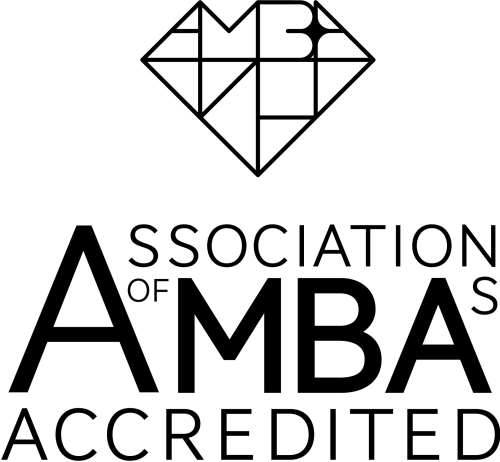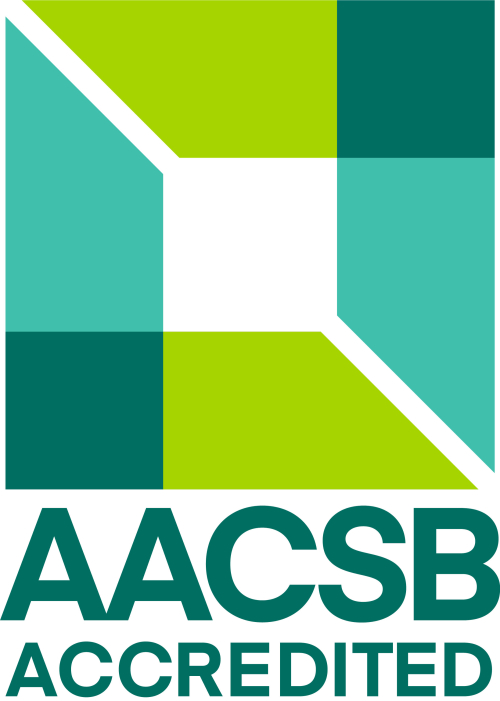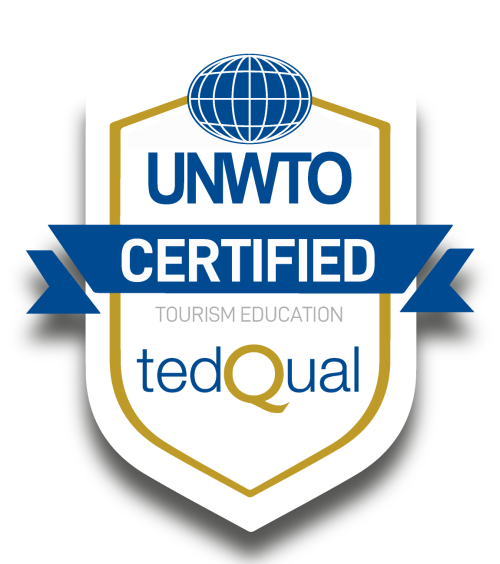AMBA
In August 2020, the Graduate School of Management (GSM) at Ritsumeikan Asia Pacific University (APU) earned accreditation from the Association of MBAs (AMBA), a U.K.-based international accreditation agency for graduate level management education, thus recognizing APU as a provider of world-class MBA education. Only 277 business schools, or 2% of the world’s business schools, have AMBA accreditation, and GSM is just the second business school in Japan to earn accreditation from AMBA.
This accreditation demonstrates that APU's MBA program offers students an education aligned with the highest global standards and will prove beneficial to students seeking employment or further education in Japan or around the world upon graduation. Earning AMBA accreditation will invigorate APU’s interactions with other AMBA-accredited institutions in 75 countries and regions around the globe.
What is AMBA accreditation?
Established in London, England in 1967, the Association of MBAs is one of the world’s most prestigious accreditation agencies for management education. AMBA only accredits master's degree (MBA, MBM) and doctoral degree (DBA) programs in management education. To obtain accreditation, an institution must clear a strict screening of 10 criteria pertaining to educational content, faculty, students, and other factors. To maintain its accreditation, the institution must undergo a re-accreditation process within a certain period of time determined by AMBA, all the while striving to maintain and improve the quality of its programs.
Association of MBAs (Note: External link)
AACSB
In August of 2016, the School of Management (SOM) at Ritsumeikan Asia Pacific University (APU) was awarded accreditation by AACSB International, a global membership organization of educational institutions, businesses, and other entities committed to the advancement of management education. AACSB-accredited business schools are required to provide high-quality management education and continuously improve. SOM was the third institution in Japan to receive this accreditation and the second to receive accreditation for both its undergraduate and graduate programs. This accreditation confirms that SOM provides world-class management education.
In order to maintain its accreditation, SOM must undergo a review every five years to confirm that it fulfills AACSB's strict criteria and show improvement since the previous review. In October of 2022, SOM was reaccredited, thereby maintaining its place amongst the 6% of business school programs worldwide to have earned AACSB and making APU one of only 6 universities in Japan to earn this accreditation.
*The School of Management at APU is made up of the College of International Management (APM) and the Graduate School of Management (GSM).
What is AACSB?
The Association to Advance Collegiate Schools of Business (AACSB) is a global membership organization of educational institutions, businesses, and other entities committed to the advancement of management education. Established in 1916, AACSB provides its members with a variety of products and services to assist them with the continuous improvement of their business schools.
AACSB International (Note: External link)
UNWTO. TedQual
In March 2018, the Hospitality and Tourism cluster within the College of Asia Pacific Studies at APU received the UNWTO. TedQual (Tourism Education Quality) certification, a system for tourism education institutions implemented by the UNWTO Themis Foundation (an affiliated organization of the UNWTO). With the expiration of the initial certification, APU underwent the evaluation process once more and was granted re-certification for the longest possible period of four years (April 2021–April 2025) as a result of the high evaluation of the university's efforts. After April 2023, the certification is being transitioned to the new College of Sustainability and Tourism.
The TedQual certification is designed to improve the quality of tourism education and research programs, and many prominent universities and equivalent institutions with tourism programs abroad have received this certification. The UNWTO’s Global Code of Ethics for Tourism values the promotion of world peace via tourism, non-discrimination, multiculturalism, freedom of movement, and freedom of employment. These serve as the pillars of UNWTO.TedQual Certification. Certified programs must adhere to that spirit while meeting a high standard of education and research. The direction of this Code is consistent with the academic goals of the APU and its College of Sustainability and Tourism.
UNWTO offers a variety of academic and exchange programs for TedQual certified institutions. As a member of this network, it is possible to establish international educational and research partnerships through inter-university and inter-major exchanges and the conclusion of agreements.
What is the UNWTO?
Founded in 1975, the United Nations World Tourism Organization is the world’s largest international tourism body. In 2003, the UNWTO became a special agency within the UN. The organization supports efforts to promote tourism, reduce poverty via tourism, and create sustainability in the tourism industry. For more information, you can visit the UNTWO website: UNWTO (Note: External link).











